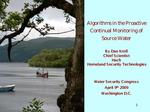Description
A hybrid membrane filtration technology combining tubular crossflow ultrafiltration with biologically active powder carbon is presented for the treatment of groundwater contaminated with gasoline. Gasoline contains a variety of hydrocarbons including several paraffins, iso-paraffins, olefins, cycloalkanes, and aromatic hydrocarbons. The aromatic hydrocarbons include benzene, toluene, ethylbenzene and xylenes (BTEX). Many of these petroleum hydrocarbons are amenable to aerobic degradation by bacteria. In this technology, referred to as the ultrafiltration biologically active carbon (UF-BAC) process, decontamination of water containing petroleum hydrocarbons is accomplished by a synergism of PAC adsorption, biodegradation, and membrane filtration. Furthermore, inorganic colloids (clay and silt), and microorganisms are effectively removed by membrane filtration. The impetus for the present study is based on the success of previous investigations which demonstrated that the UF-BAC process was efficient and cost effective in the treatment of several high strength industrial wastewaters. This study investigates the feasibility of the process for the treatment of water contaminated with gasoline. It examines the permeate flux that can be maintained in the process by the successful application of PAC and fluid management. The study further observes the morphology of the membrane, and the nature of the PAC cake formed on the membrane surface.
Product Details
- Published:
- 01/01/1995
- ISBN(s):
- 0898678153
- Number of Pages:
- 11
- File Size:
- 1 file
- Note:
- This product is unavailable in Ukraine, Russia, Belarus





